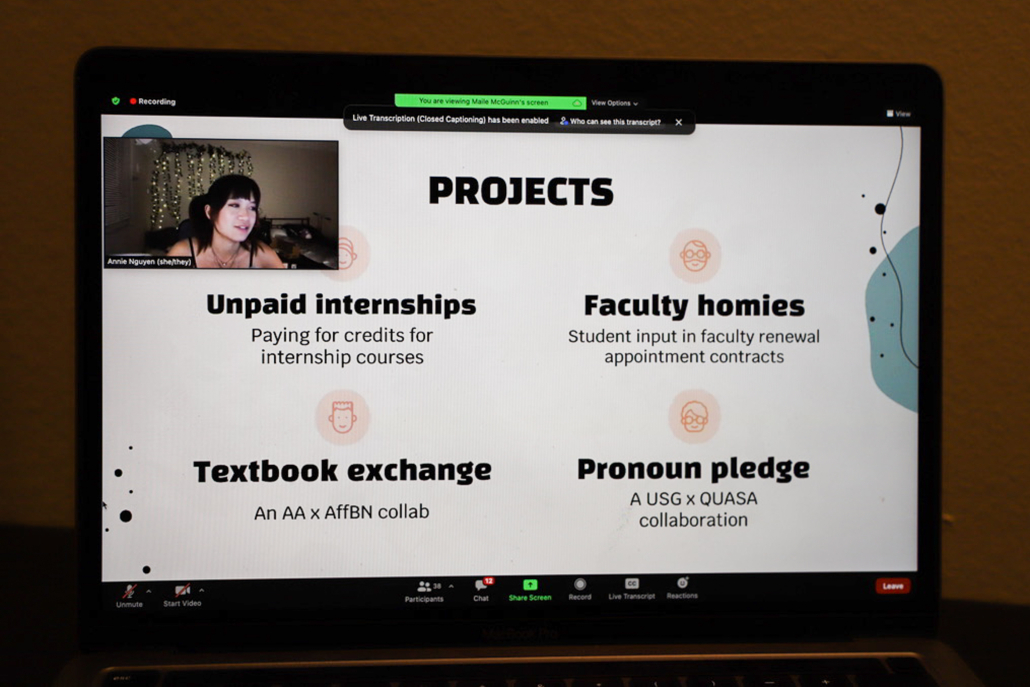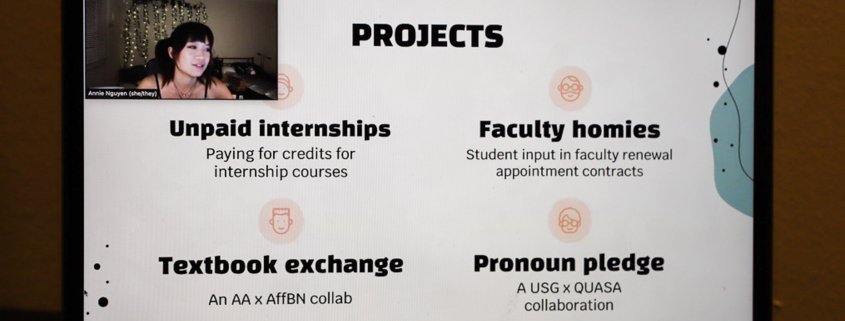USG discuss unpaid internships

During the Undergraduate Student Government meeting Tuesday, senators discussed mental health initiatives and updates to a textbook aide program.
Wellness affairs chairperson and senator David Atash presented updates to his projects, including Counselors Not Cops, a cross-committee project with the external affairs committee that is part of a group of projects designed to reform the Department of Public Safety.
“At the moment, we’re exploring ways to have either DPS officers include training on crisis management and crisis aversion,” Atash said in an interview with the Daily Trojan. “We’re also exploring options of possibly what it would take to hire additional crisis counselors in conjunction with DPS on calls.”
Atash also works on a project titled Mental Health Gatekeeper trainings, which partners with student organizations to test and measure the outcomes of suicide prevention gatekeeper training. The project aims to act as a pilot for a more encompassing training program for students, faculty and staff.
“[It’s] so that we can present it to administration and advocate for broader wellness and mental health,” Atash said. “As more or less like tools within their toolkit.”
Academic affairs chairperson Annie Nguyen presented her project updates, including an initiative that would create ways for students to finance credited unpaid internships.
In an interview with the Daily Trojan, Nguyen said all USC students are required by federal law to take credit hours for unpaid internships but not all of them can afford it, which can prevent them from reporting their work.
“[We’re] setting up a framework that addresses the larger kind of inaccessibility of the idea of unpaid internships, which obviously is less so on the academic credit side and more so on the corporate labor practices that we have as a society,” Nguyen said.
Nguyen also takes part in the Textbook Exchange Project, a program designed to alleviate inequities in students’ access to course materials. The project recently incorporated the academic affairs committee, the affordability and basic needs committee and chief diversity officer Kavita Rai.
“For a lot of low-income students or students who are struggling, it’s a lot to drop a few hundred dollars on a textbook,” said Hunter Hinson, a senator with the affordability and basic needs committee, in an interview with the Daily Trojan.
The project initially strived to create an exchange network where students can list their textbooks on a database after they’re done with a course to facilitate exchanges. However, Nguyen said the project ran into issues with physical storage as the increasing number of books in circulation have reduced the amount of space available in libraries. The project also aims to reduce the financial burden course materials can impose on students by covering a portion of the cost.
Despite the logistic issues, Nguyen said she’s satisfied with the project’s progress and hopes to maintain transparency with the student body.
“There will be people who will always be buying textbooks and can’t find those textbooks that are already in circulation, and, if that is the case, then we want to make sure that price isn’t a financial barrier to either taking the class or succeeding in the class,” Nguyen said.

